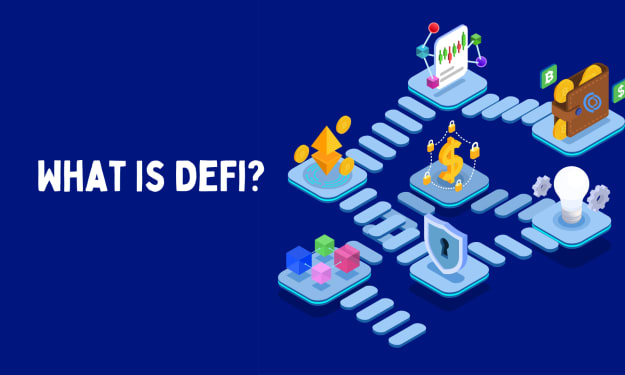What is a smart contract auditing?
smart contract auditing

Summary
Over $1.3 billion in crypto has been exploited, scammed and attacked in DeFi smart contracts in 2021. Unaudited contracts, inappropriate forks, outright scams, etc. can be blamed for such huge losses. But according to the Certik DeFi Security Report, most of the projects attacked were unaudited.
In this article, we will examine what smart contract audit services are and how to protect them from bad players in the market.
We will also introduce some smart contract auditing firms and their concerns.
smart contract attack
A smart contract is a self-executing line of code that follows instructions set on a blockchain network. These contracts enable users to conduct non-open and transparent transactions on the blockchain without being bound by a central authority or any legal system.
Due to their utility, they have become the building blocks of complex decentralized applications such as DeFi and DExs, ICOs, voting protocols, and supply chain management.
As smart as they may seem, if any security flaws or vulnerabilities are detected in the code, they can do huge damage.
Often, a smart contract might perform its designed function, but the existence of a vulnerability would allow hackers to build code that interacts with the smart contract to transfer funds.
- A case in point is the recent hack on Qubit Finance, where hackers used its cross-chain bridge to steal 206,809 BNB tokens — worth around $80 million.
- Another example that goes down in history is the 2016 DAO hack, which resulted in $50 million in damages.
Known or standard vulnerabilities in smart contracts
Competitive Hazards: Activities are not performed in a predetermined order. In smart contracts, competition hazards can arise when an external contract takes over the flow of control.
Fork Attack: In this case, some functions are called repeatedly before the first function call is completed. One of the key solutions is to prevent concurrent calls in certain functions, smart contract audit especially when checking for external calls.
Cross-functional competition hazard: Describes similar attacks of two functions that share the same state and have the same solution.
Another competitive risk that has an impact on transaction order within a block is the Transaction Order Dependency (TOD) Problem/Frontend Running Problem. One user can gain an advantage over another by changing how the transactions are ordered.
Problem with database manipulation: This exploit targets smart contracts that use outside data as input. Even if the data is input incorrectly, it will still be processed automatically. Relying on database protocols that have been compromised, have been deprecated, or have been designed with malicious purpose can have disastrous implications on all programmes that depend on them.
Attack using a short address and a parameter issue: This kind of attack involves EVM. When a smart contract accepts parameters that have been entered wrongly, this occurs. By utilising a constructed address that incorrectly encrypts the arguments, an attacker can use a miscoded client to their advantage in this way.
Smart Contract Audit
Similar to regular code auditing, the security of a smart contract is directly proportional to the quality of the deployed code. It involves extensive review and analysis of smart contract code. To do this, smart contract auditors check for common bugs, known bugs on the main platform, and simulate attacks on the code. Developers (usually external smart contract auditors) can then identify bugs, potential bugs, or security holes in the project’s smart contracts.
Because deployed contracts cannot be altered or revoked, this service is essential to the blockchain sector. Any defects are very likely to make the contract dysfunctional or vulnerable to security breaches, which would cause irreparable harm. Nowadays, bsc smart contract audit obtaining audit verification is an element in building customer confidence.
Steps of smart contract audit:
1. Check consistency between code features and project white papers;
2. Check for standard vulnerabilities;
3. Symbolic analysis;
4. Automated analysis via automated tools (Method 1): Tools like Truffle and Populus are used for automated code testing . This approach takes very little time and has a finer penetrability compared to manual code inspection. But it also has limitations that lead to misidentification and missing vulnerabilities;
5. Manual code and code quality review (Method 2): In this case, the code is checked manually by an experienced developer. Although automatic inspection is faster, manual inspection can lead to errors and omissions;
6. Gas usage analysis;
7. Performance optimization;
8. Report preparation.
Smart Contract Audit Firm
1. CertiK: Founded in 2018, CertiK is one of the top choices in the blockchain market because of its transparency and verification engine verification tools that ensure scalability and excellent security. That said, their approach is primarily mathematical. The company claims that they detected more than 31,000 vulnerabilities in smart contract code, audited 1,737 projects, and acquired more than $211 billion worth of digital assets.
2. Hacken: A second business that offers auditing services for blockchain systems like Ethereum, Tron, EOS, etc. is Hacken. Hacken offers more than just blockchain solutions; they also offer security goods to IT businesses. By enabling functions such as dark web monitoring warnings, Hacken’s Hackennai Security Platform shields end users from security breaches.
3. Quantstamp: Quantstamp is a blockchain security company with developers from top IT companies such as Facebook, Google, and Apple. Quantamp has a wide range of blockchain security tools and services, including: Decentralized Security Network for smart contract auditing. According to them, Quantstamp protects over $200 billion in digital assets and they have more than 200 foundations and startups involved in their product.
4. ConsenSys: Established in 2014, ConsenSys has a talented group of programmers, business professionals, attorneys, and security suppliers. Its platform, which is built on the Ethereum ecosystem, seeks to offer blockchain solutions for financial infrastructure, security and product protection, etc. The business sells security analysis tools for smart contracts. It offers automated smart contract scanning and cryptoeconomic analysis for the Ethereum blockchain.
5. Chainsecurity: Provides products and services that secure blockchain protocols and smart contracts. Chainsecurity is trusted by over 85 blockchains and has acquired over $17 billion worth of digital assets. They also work with PricewaterhouseCoopers Switzerland to conduct security reviews, create solutions for evaluating smart contracts, and test and run smart contract performance metrics.
6. Runtime Verification: Runtime verification runs security audits on virtual machines using a run-time verification approach that improves standards compliance and provides broader coverage during execution. Runtime products and services include Smart Contract Validation, Protocol Validation, Advisory Services, Firefly, ERC20 Token Validator, and IELE.
About the Creator
cypher shield
Get your smart contracts audited and certified by leading smart contract security experts. Our smart contract audit services cover functionality, vulnerabilities, and gas efficiency. Talk to a consultant now to get started.






Comments
There are no comments for this story
Be the first to respond and start the conversation.